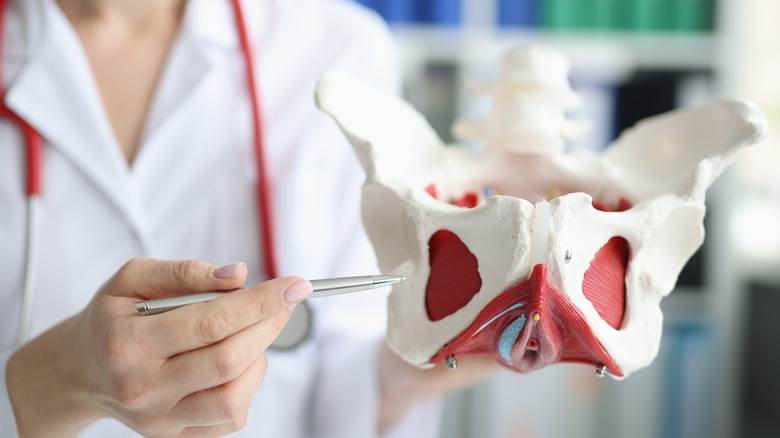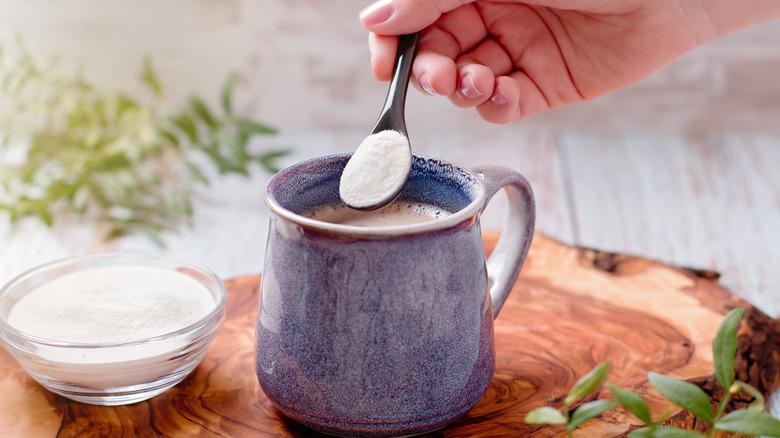This Is The Supplement That May Strengthen Your Pelvic Floor
Of all the muscles in the body, we tend to not think about the muscles of the pelvic floor. Unlike your biceps or abdominal muscles, you can't see the muscles of the pelvic floor when you get dressed in the morning. However, the pelvic floor is important for the health and function of your body. According to the Cleveland Clinic, the pelvic floor is a group of muscles that sit at the bottom of the pelvis to form a "floor" or foundational structure for organs that sit inside of the pelvic bowl.
Not only are the bladder, uterus, vagina, rectum, and prostate supported by the pelvic floor, but pelvic floor muscles impact the function of each organ. Just as other muscles of the body, pelvic floor muscles can contract and relax. The absence of a strong pelvic floor often goes unnoticed until signs or symptom are present (via Cleveland Clinic).
A weak pelvic floor can cause organ dysfuction
When pelvic floor muscles are weak, they can cause organs inside the pelvis to not function properly. According to the National Institutes of Health (NIH), pelvic floor disorders (PFDs) happen when there is injury to the pelvic floor or when the pelvic floor becomes weak. One sign of a weak pelvic floor is when there is leakage of urine when you cough or sneeze. This is called urinary incontinence, and it can happen when pelvic floor muscles are too weak to contract and hold urine inside the bladder. Organ prolapse and loss of bowel control can also occur with weak pelvic floor muscles (via NIH).
To avoid pelvic floor dysfunction, it is important to strengthen pelvic floor muscles. Many people have heard of Kegel exercises, a group of exercises that strengthen pelvic floor muscles through techniques of contraction and relaxation (via Urology Care Foundation). In addition to Kegel exercises, there is a supplement that may help tone up your pelvic floor.
Collagen supplements may strengthen pelvic floor muscles
Pelvic floor muscles need key nutrients to provide support for pelvic organs. According to the Harvard School of Public Health, collagen is a connective tissue that is a major component of skin, muscles, tendons, and cartilage. Betsey Greenleaf, D.O, a urogynecologist and pelvic floor expert said, "Collagen composes the tissue, such as fascia and ligaments, and adds to the strength against gravity," (via MindBodyGreen).
A weak pelvic floor can be caused by several factors. Aging, smoking, sun exposure, lack of sleep, not enough exercise, and too much alcohol consumption can decrease our ability to make collagen. Greenleaf said, "Weakening of the pelvic floor is a combination of thinning of the collagen in the fascia and muscles and weakening of the muscle fibers." Although there isn't specific research on the effects of collagen supplements in regard to pelvic floor muscles, according to MindBodyGreen, research has shown that collagen supplements increased muscle mass when combined with exercise.



